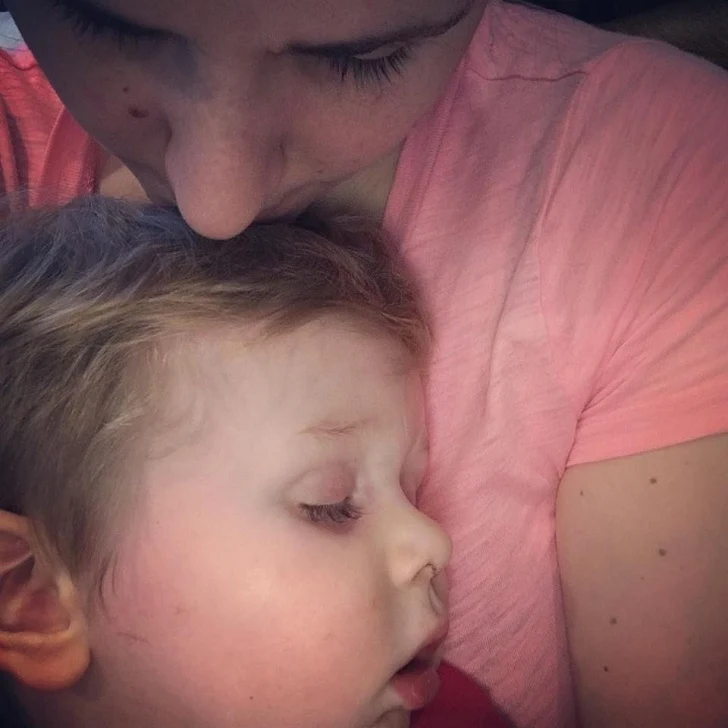 |
| Courtesy |
Being sick as an adult is bothersome, but it's even worse for a child, who has yet to fully understand how their body works. If you have ever had a child with an illness, you know that night comfort for sick kids is one of the biggest challenges a parent can face.
One of the most worrying – and heartbreaking – sights for a parent is to see their child in pain or discomfort.
All parents who have ever had to care for a sick child want to make it all go away; they are also familiar with the panic that sets in. But parents can also quickly snap out of it, knowing their little one is counting on them to provide night comfort for sick kids.
It's normal for parents to feel worried when their children are sick, but as much as possible I try to avoid panicking because it will not help me think well.
From the common cold to more serious infections, these six guidelines will surely help ease your child's discomfort and keep your worries at bay.
Do not force them to rest when they don't want to
Letting your little one decide when they want to sleep or rest is a great way to comfort them. Kids won't force themselves to play if they fell unwell, so give them the freedom to do so. Just make sure they don't overexert themselves and watch over them as they play.
Be creative with their diet
Even if your sick child has a poor appetite, you don't have to stick to the bland and the traditional food we give kids when they're sick. Ask them what they feel like eating and come up with ways to make it healthier. Don't force them to eat when they don't feel like it.
Take it slow, but make sure they don't miss meals.
If your child is battling the flu, common cold, diarrhea, and the like, keeping them hydrated is important! Not only is proper hydration achieved by drinking water and juice, but also by feeding them noodle soup, chicken broth, or rice porridge.
If your child refuses to eat or drink anything for 24 hours or more, bring them to the pediatrician immediately.
Make medicine (a little bit) more enjoyable
Not all medication comes in tasty formulations. If your child is prescribed an unpleasant-tasting type of medicine, mask the bitterness by giving it to them super cold. You can mix them in soft food, too, like yogurt or pudding.
Just make sure to consult your doctor to make sure that mixing the medicine in food doesn't affect the drug's efficacy.
Decongest and make sleep as comfortable as possible
More often than not, what truly bugs a sick child is their clogged, stuffy nose. Since kids aren't really good at blowing their noses, you can help make this easier by applying saline solution into their nostrils.
Remember: Decongestants aren't recommended for kids under the age of four.
Do this a couple of times each day for better relief at night. You can also make use of a cool-mist humidifier or vaporizing rub to help them breathe easier. Do they have a headache? A soothing, gentle massage works wonders.
Knowledge is not only power, it can also be a way to chase the fear away. Take time to talk to kids about their illness, and read to them about it. Once they know what they are up against, they won't be as afraid or worried. Most of all, remind them that you are fighting this enemy together and that it will all soon pass.
There's nothing like a good book or a favorite movie to keep your sick kid occupied throughout the late hours. Distraction is an important tool in your arsenal, mums, and dads! Use it wisely as a part of night comfort for sick kids.
Kids need our undivided attention. This is especially true when they are sick. Being sick can be scary, so cuddles, kisses, and words of reassurance are crucial. When your kid is sick, it is not just the physical needs that should be met, but the emotional needs too.
Above all, do not hesitate to bring your child to her pediatrician or a specialist if symptoms persist.
We hope you found these guidelines helpful. How do you comfort your sick child?
Sources: What to Expect, Today.com, WebMD
Do this a couple of times each day for better relief at night. You can also make use of a cool-mist humidifier or vaporizing rub to help them breathe easier. Do they have a headache? A soothing, gentle massage works wonders.
Take time to learn about sickness
Knowledge is not only power, it can also be a way to chase the fear away. Take time to talk to kids about their illness, and read to them about it. Once they know what they are up against, they won't be as afraid or worried. Most of all, remind them that you are fighting this enemy together and that it will all soon pass.
Distract and entertain them
There's nothing like a good book or a favorite movie to keep your sick kid occupied throughout the late hours. Distraction is an important tool in your arsenal, mums, and dads! Use it wisely as a part of night comfort for sick kids.
Shower them with unlimited TLC
Kids need our undivided attention. This is especially true when they are sick. Being sick can be scary, so cuddles, kisses, and words of reassurance are crucial. When your kid is sick, it is not just the physical needs that should be met, but the emotional needs too.
Above all, do not hesitate to bring your child to her pediatrician or a specialist if symptoms persist.
We hope you found these guidelines helpful. How do you comfort your sick child?
Sources: What to Expect, Today.com, WebMD